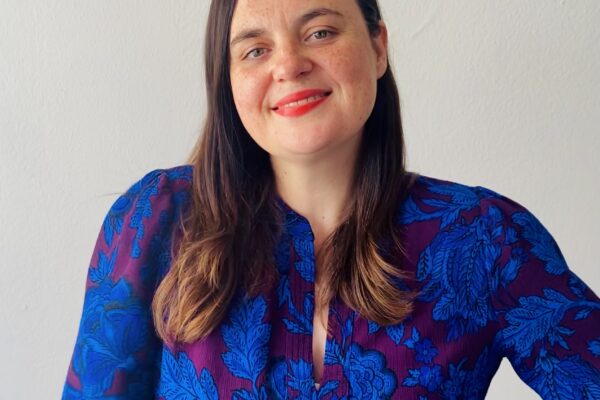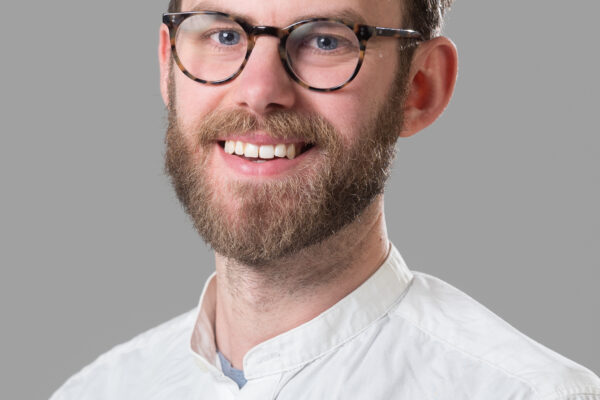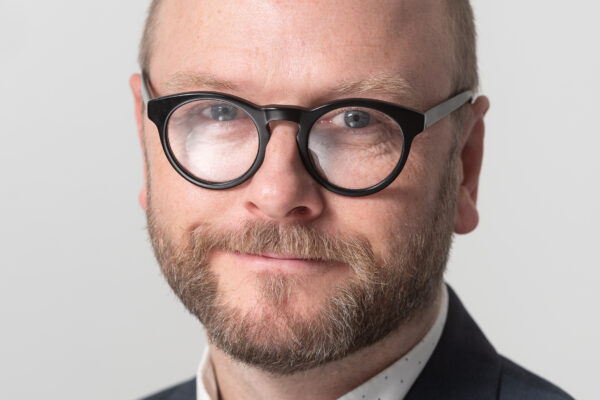
Success stories
TrAPs Nanotech
An innovative new therapy to heal broken bones and problem wounds
An early career researcher has developed a new form of nanotechnology to precisely deliver essential growth factor protein to wounds and fractures that fail to heal properly on their own.
Imperial’s Dr Nuria Oliva-Jorge joined the TrAPs (Traction-Activated Payloads) technology team as a postdoctoral researcher in Dr Ben Almquist’s lab at Imperial’s Department of Bioengineering.
Through MedTech SuperConnector (MTSC) she was able to perform pre-clinical animal trials to demonstrate the effectiveness of the therapy in promoting long-term healing in rats.
Following on from this work, Nuria was awarded an Imperial College Research Fellowship to start her own research group to pursue other lines of investigation, along with continuing to drive the development of the TrAP technology towards clinical trials.
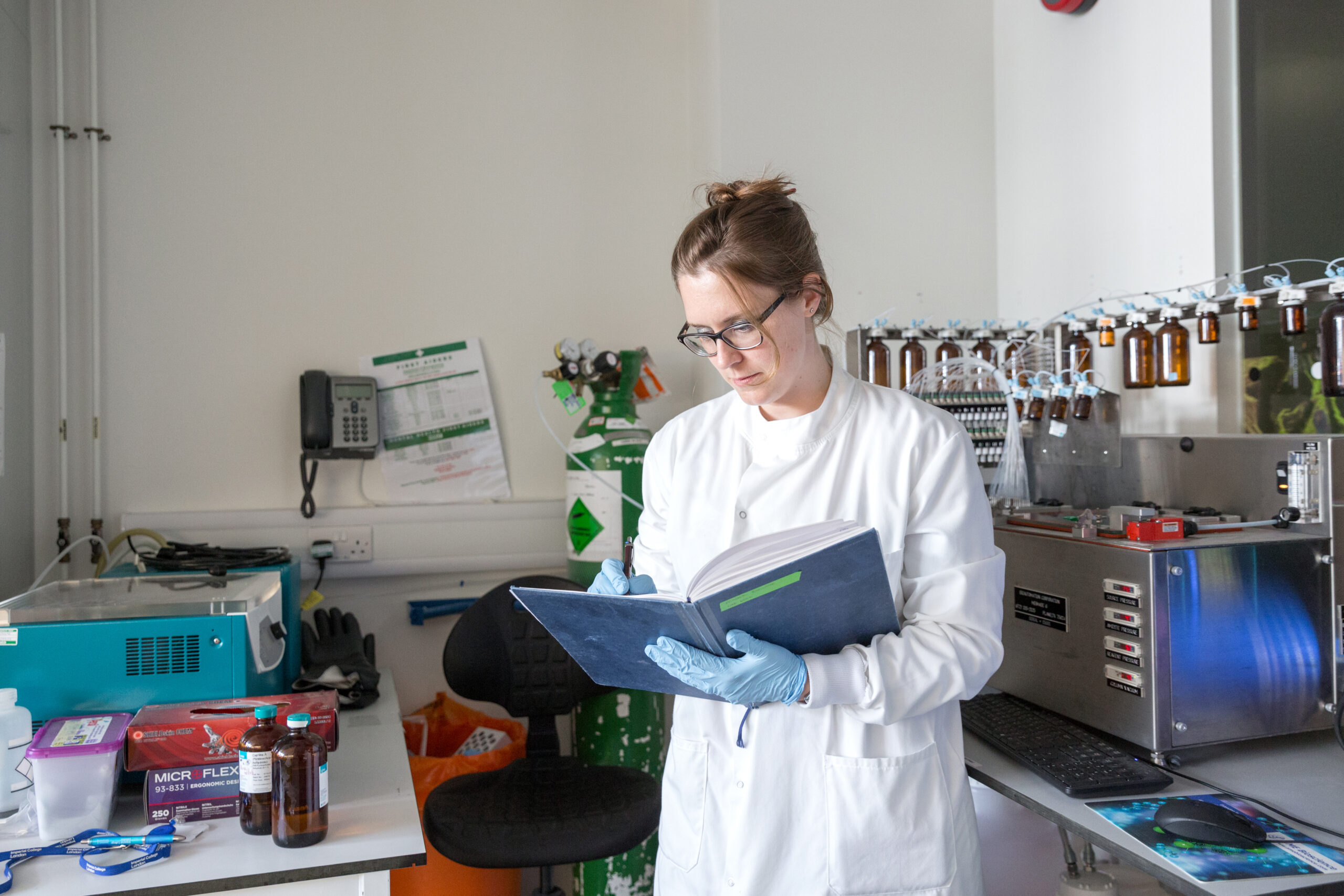
A healing touch
One in ten broken bones will never heal, a condition medically known as non-union fracture. Around half of patients with non-union fracture never return to work, causing a huge social and economic burden.
Despite most bones having an excellent blood supply, high-energy injuries, like those sustained in traffic accidents, can damage muscle and bone to an extent that blood supply is impaired. In these cases, nutrients and oxygen can’t reach the injury and cells starve. Particularly important in healing are protein growth factors. There are clinically approved growth factor therapies on the market, but they are extremely expensive and inefficient, requiring the delivery of large does which cause serious side effects.
Working in the lab of Dr Almquist, Nuria began investigating alternative delivery methods for growth factors, using DNA nanotechnology called TrAPs. Nuria explains:
“The DNA acts a folded cage that keeps the growth factor inactive and protected, until it is pulled open by the cells through mechanical forces – similar to untying a shoelace – releasing growth factor in a sustained manner, when and where the cells need it.
“This enables the use of over 1000-fold less growth factor than currently available therapies, in turn reducing side effects and associated costs.”
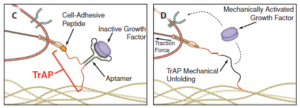
On a journey from bench to bedside
Through MTSC, Nuria was able to build a network of advisors and connections, including orthopaedic consultants and clinical trial coordinators in various hospitals in London, who provided medical advice related to translating the technology to the clinic.
The team was then able to proceed with the first in vivo pre-clinical trial in rats. They have gathered invaluable data showing that the TrAPs technology is well-tolerated in vivo, with no negative side effects observed, the TrAP technology promotes accelerated healing in a critical size defect in rats’ femurs compared to controls in the first 3 weeks of the treatment, and that healing continues to take place for 12 weeks (demonstrating that the platform is stable over time in vivo).
Meanwhile, cost analysis suggests that the TrAPs technology would cost in the region of £50/patient, compared to £6000 for current clinically used growth factor therapies. Moreover, the technology can be incorporated in currently approved graft substitutes, such as collagen sponges used by a well-known market leader for spinal fusion applications, accelerating the path to market.
In 2020 the team won the Wound Shark Business Pitch Competition, providing a year of mentorship and advice from Alira Health to explore the US market.
A vocation for translational research
While Nuria had previously been involved translational research during her PhD at MIT, she was able to get more involved this time around:
“At the end of the day I got into scientific research because I want to see my outputs being used for the benefit of people. Doing research for the sake of research doesn’t work for me. Admittedly, there is a trade-off with this route; you can’t always publish as frequently as other investigators. But I have this entrepreneurial background most of them don’t have, and I think in the long run it’s going to be worth it. You’ve got to do what you find exciting, and to be in translational research is exciting for me.”
“With MTSC I realised that actually I can do this myself and I can learn the various processes – for example how to design and enact a business plan. Now that I’m a group leader, all of my projects are translational – for example we’re looking at using nanoparticles in the treatment of advanced ovarian cancer and developing biomaterials to regenerate cartilage in osteoarthritis.”
Dr Nuria Oliva-jorge
Outcomes
Lorem ipsum dolor sit amet, consectetur adipiscing elit.
Lorem ipsum dolor sit amet, consectetur adipiscing elit.
Lorem ipsum dolor sit amet, consectetur adipiscing elit.
Lorem ipsum dolor sit amet, consectetur adipiscing elit.

